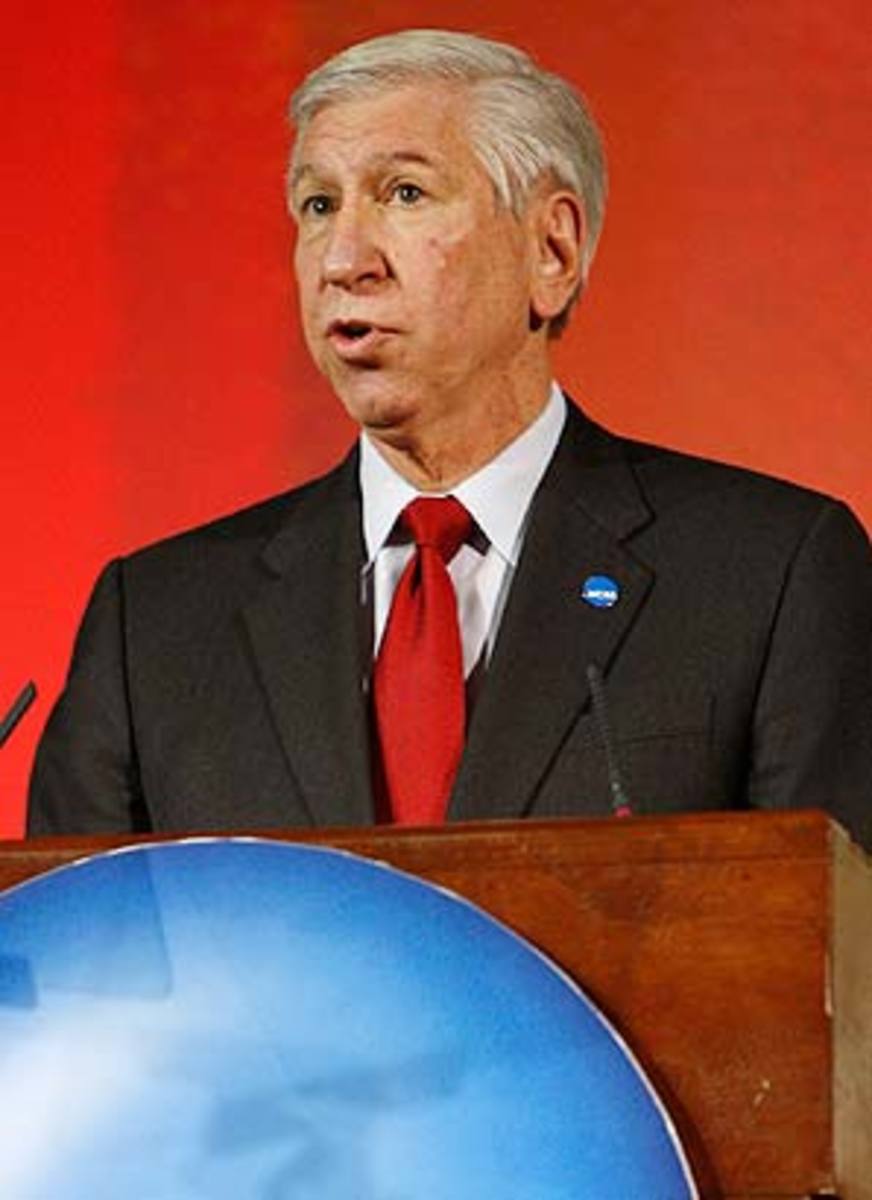Thrust into spotlight at Indiana, Brand leaves legacy of integrity
I wrote two SI stories about Brand that year -- the first when, as president of Indiana, he put basketball coach Bob Knight on double-secret probation; and another story several months later, after Knight violated the terms of that arrangement and Brand let him go.
SI VAULT: Indiana lets Bob Knight off (05.22.00)
The subhead in the cover billing of that first piece read, "Indiana Caves, Bob Knight Stays." A thread of "Yeah, sure" skepticism ran through my story, for I couldn't help but conclude that Brand, a philosophy professor, had permitted Knight to sweet-talk him into yet one more second chance in what seemed like an endless string of them.
To be sure, in addition to a $30,000 fine and a three-game suspension, Knight would from that point forward be subject to "zero-tolerance" rules. But, Brand said at the time, "Given the fact that in the past he hadn't had [strict behavioral] guidelines, I believe the ethical approach is to give him one last chance." I insinuated that action theory, Brand's academic subspecialty, was little more than a laughable oxymoron.
I made my point of view -- that Knight had won a reprieve with a charm offensive and Brand had wimped out -- forcefully enough that one reader suggested that I, not Knight, needed anger management counseling.
In fact, Brand wound up being true to his word. Only months later, after Knight's run-in with an undergraduate, Brand cut him loose, incurring the wrath of much of the state by doing so. But with his principled boldness Brand won admirers beyond the Hoosier State, and he soon parlayed a freshly minted reputation as a reformer into the NCAA presidency, which he assumed in January 2003. And by most accounts his stewardship of that organization has represented a striking and salutary departure from his predecessors'.
SI VAULT: Bob Knight fired (09.18.00)
After its founding by an ex-sportswriter-turned-conference-commissioner named Walter Byers, it was the NCAA's fate to be shepherded by Dick Schultz and Cedric Dempsey, a couple of out-to-pasture ADs beholden to college sports' vested interests. With Brand, the organization finally answered to an academic, someone who could bring credibility to issues important to university presidents.
Brand's legacy will be to have ended forever the practice of paying mere lip service to academic performance. He championed measurable progress with the introduction of the Academic Progress Rate, or APR. Now schools pay a real price -- in lost scholarships, scaled-back practice time and, potentially, postseason exclusion -- if their athletes fail to make their way toward degrees. To be sure, big-time basketball and football are as addled as ever by the scourges of extra benefits and middlemen. And progress on football APRs seems to have stalled out of late, even if briefly. But basketball APRs are up over the past seven years, from 55 percent to 65 percent.
Indeed, within the next several years, the NCAA won't just be reporting APRs by school and sport. The "Two-Ay," as members of the clipboard carriers' guild call that organization, will hang an APR on every coach. Think of it: Each Armani-wrapped sideline preener, and headset-sprouting screamer, tagged "Branded," you could say -- with an irrefutable metric signaling his commitment to academic seriousness, or lack thereof.
If parents or high school coaches still choose to send a kid off to play for some shyster with a lousy APR, it'll be their own damn fault.
Even at Indiana -- where police had to evacuate Brand and his wife from their residence on campus, as he was burned in effigy on their front lawn in the aftermath of Knight's firing -- there's real pride at the story Brand wrote with the last chapter of his life. The school awarded him an honorary degree in March.
Myles Brand did two things not considered imaginable during the 20th Century: Bring an out-of-control Bob Knight to heel, and hold schools accountable for poor academic performance in revenue-producing sports. Those two achievements will stand as a fine opening act for college sports' 21st Century.





